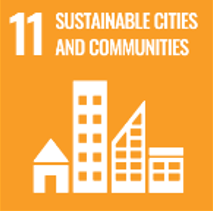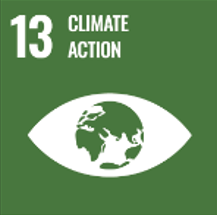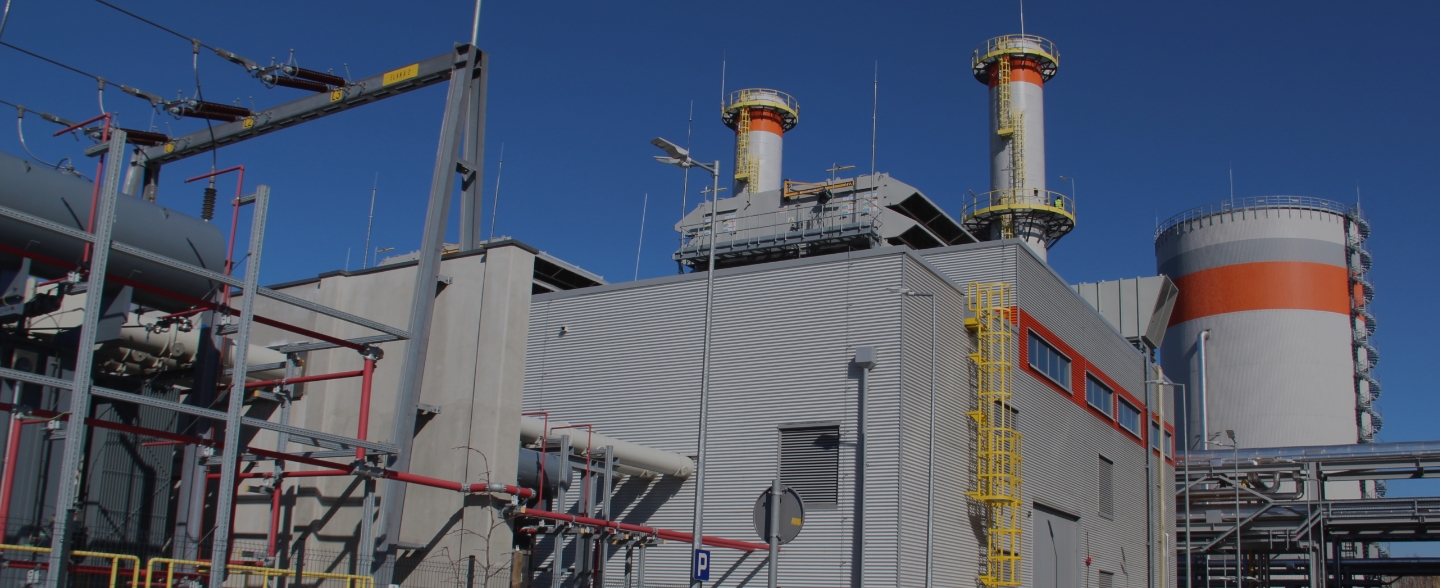The production of electricity and heat from fossil fuels has an impact on the environment, which is why PGE Group attaches great importance to minimising the harm. Given the profile of our operations, air quality in Poland is of key importance to us.
PGE - largest producer and supplier of district heating
PGE places particular emphasis on the development of district heating, knowing how its use has a positive impact on the improvement of air quality and the environment. Thermal energy for heating is produced in high-efficiency CHP plants equipped with efficient systems for denitration, desulphurisation and particulate matter filtering. In addition, electricity is produced in a cogeneration process, which means that the energy contained in the fuel is converted and used more efficiently.
District heating is one of the most effective ways of combating smog, which – especially in the autumn and winter season – is a problem in many Polish cities. PGE Group attaches great importance to working with local authorities, jointly counteracting smog problems to improve the quality of life for residents. Research indicates that, depending on location, one of the main sources of smog is individual heating of buildings with low-quality fuels.
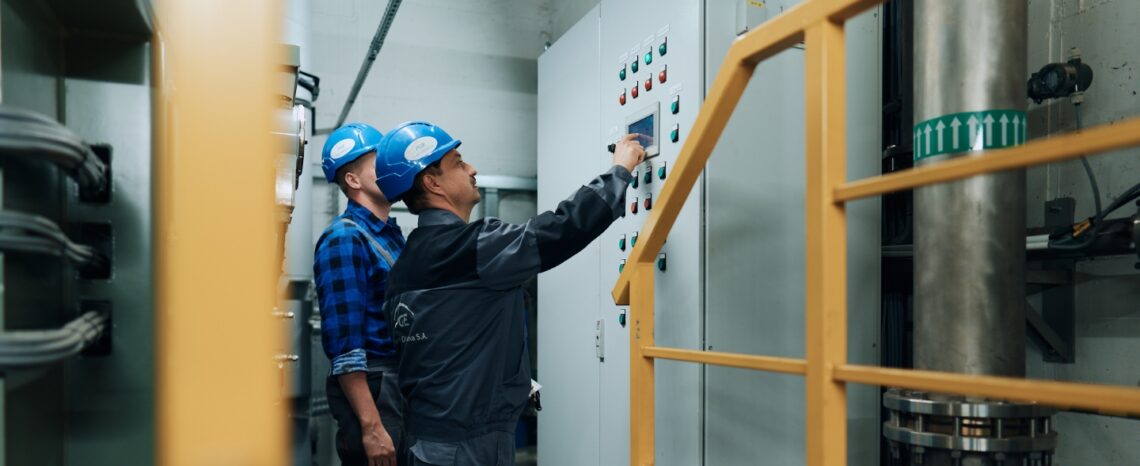

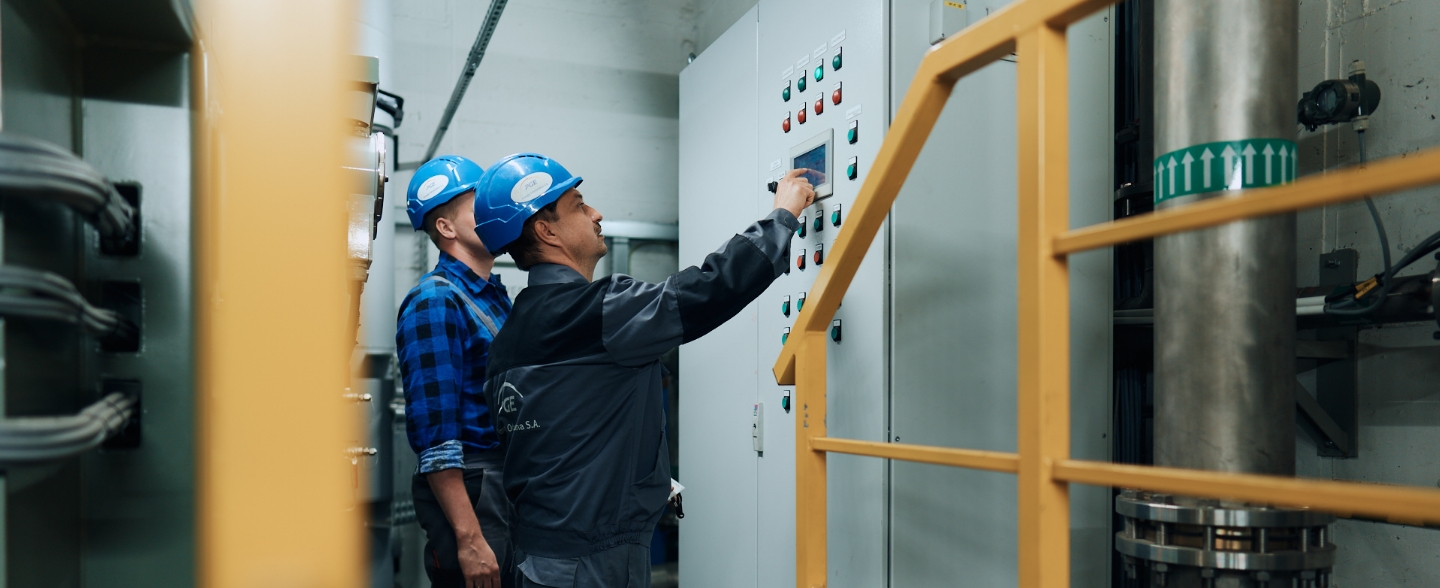
PGE Group cares for partner relations with local authorities and local distributors, thanks to which it develops solutions beneficial to customers. PGE Group’s District Heating Strategy is an answer to the need to improve air quality in cities through mass connections to the district heating network and the retirement of old, inefficient and environmentally polluting household coal furnaces.
The strategy aims to:
- replace over 100 000 individual heat sources by 2030,
- make investment decisions for natural gas by 2025 at the latest, with commercialisation of zero-carbon fuels (e.g. green hydrogen) or electrification of district heating necessary in subsequent years,
- exceed 70% share of zero- and low-carbon sources in heat generation by 2030,
- build new waste-to-energy incinerator systems.
In local markets in 2021, PGE Energia Ciepła connected buildings with an aggregate demand of 229 MWt to the municipal heat networks. It is as if an entire city the size of Gorzów Wielkopolski was connected to the district heating system in one year. In markets where PGE Energia Ciepła is only a heat producer, buildings with a demand of 197 MWt were connected, whereas in markets where PGE Energia Ciepła operates as an integrated entity and is also a heat distributor, buildings with a demand of 32 MWt were connected. Three quarters of connections were made in three large cities: Kraków, Wrocław and Gdańsk. PGE Energia Ciepła also connected buildings from the primary market, i.e. newly constructed buildings with heat demand of 164 MWt. On the secondary market, i.e. facilities which replaced their heat supply with the municipal heating network, the company connected buildings with heat demand of 65 MWt.
Modernisation of generating assets
Consistent investments in generating assets reduce PGE Group’s environmental impact. Using the best available technologies, PGE Group strives to further improve its environmental performance. In 1989-2021, PGE Group’s power plants reduced emissions as follows: SO2 by 94%, NOx by 65%, particulate matter by 99%.
Depending on the location, modernisation programs have different scopes of adaptation works. A large group of modernisation and restoration investments in 2021 consisted of tasks aimed at adapting generating units to the requirements of BAT conclusions. Most of them have been completed. In the case of PGE Górnictwo i Energetyka Konwencjonalna, the following power stations were adapted to BAT conclusions: Bełchatów, Opole, Dolna Odra, Rybnik, Turów, Pomorzany. In the case of PGE Energia Ciepła, a dozen or so tasks were carried out at the following CHPs: Wybrzeże, Kraków, Wrocław. Some adaptation tasks are still in progress due to time derogations secured. In the case of PGE Energia Ciepła the derogation period lasts until the end of 2023. The undertaken measures were mainly aimed at adjusting PGE’s generation assets to environmental limits (e.g. reduction of emissions of dust, SO2, NOx, Hg and more) but they also contributed to improvements in other parameters, including generation efficiency and the increase of control capabilities, which are also important due to the reduction of failure rates.
Another example of an investment that contributes to reducing emissions into the environment and at the same time improves generation parameters is the modernisation of a gas turbine at the Zielona Góra CHP. The investment is in progress. It is expected to be completed in autumn 2022. As a result of the modernisation, the unit’s emissions will be reduced (e.g. NOx), the efficiency of energy generation will be increased and the regulatory parameters of the entire generating unit will be improved, which also has an impact on the CHP’s failure rate.
